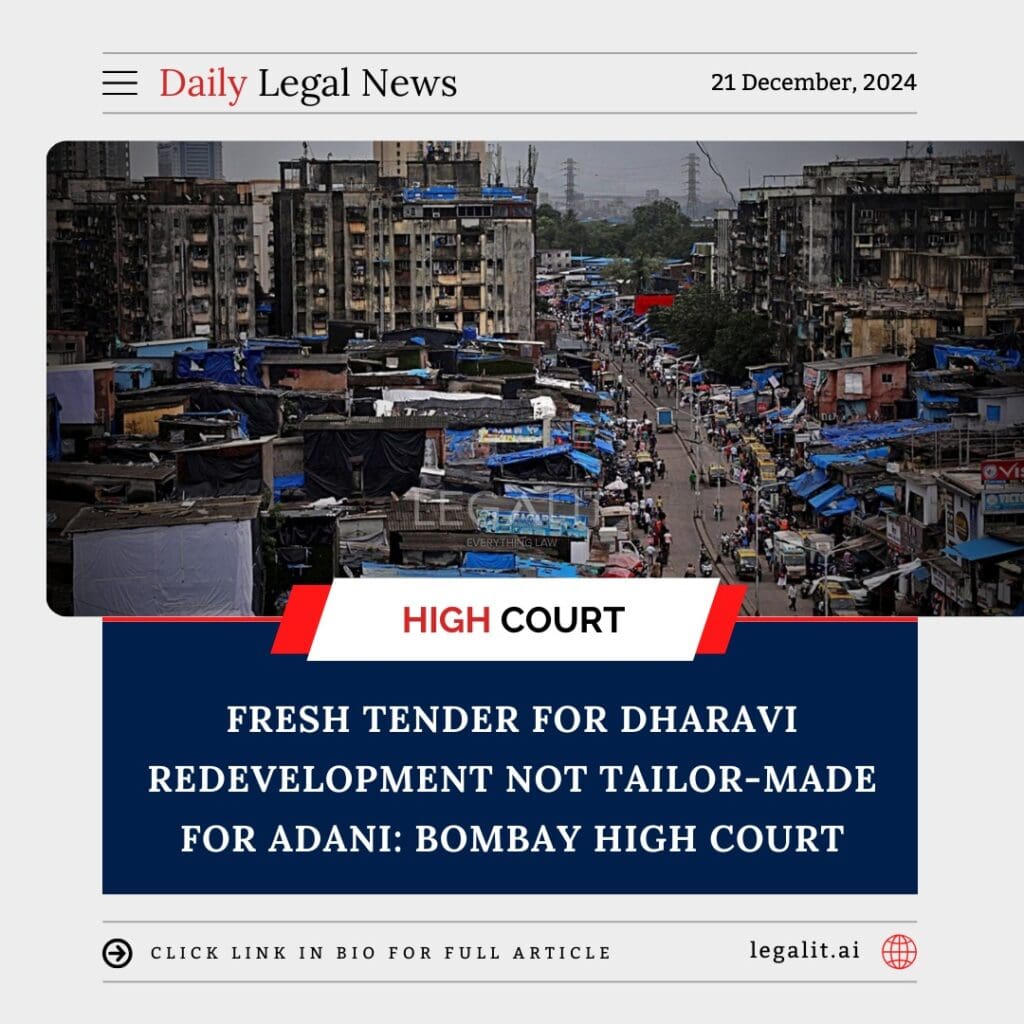
The Bombay High Court dismissed allegations that the Maharashtra government’s fresh tender for the Dharavi redevelopment project was designed to favor the Adani Group. The court upheld the legality of the tender process, emphasizing that no evidence suggested any undue advantage or bias.
Background
The Dharavi redevelopment project, one of the largest urban renewal projects in India, has faced delays and controversies since its inception. The Maharashtra government issued a fresh tender in 2022 after the initial process was scrapped in 2019.
A petition filed by Seclink Technologies Corporation, the earlier highest bidder, alleged that the new tender process was arbitrary and skewed in favor of the Adani Group. Seclink had previously been declared the highest bidder but claimed the project was unfairly re-tendered.
Court’s Observations
The Bombay High Court analyzed the tendering process and dismissed the petition, noting the following:
- Transparency: The court observed that the fresh tender adhered to established legal procedures and principles of transparency.
- Equal Opportunity: It concluded that all eligible bidders were provided a fair chance to participate, and the terms were not tailored to benefit any single entity.
- Executive Prerogative: The court reiterated that the government has the authority to retender a project in the larger public interest, provided the process is not arbitrary or discriminatory.
Key Arguments
Petitioner’s Stand:
- Seclink argued that the scrapping of the original tender process, in which it had emerged as the highest bidder, was arbitrary.
- It claimed that the fresh tender’s conditions were designed to favor larger entities, indirectly benefiting the Adani Group.
Respondent’s Stand:
- The Maharashtra government and Dharavi Redevelopment Authority (DRA) contended that the decision to retender was based on public interest and evolving project requirements.
- They denied any bias, stating that the fresh tender’s terms were formulated to attract credible bidders capable of handling the complex redevelopment project.
Implications of the Ruling
The court’s decision clears the path for the redevelopment of Dharavi, one of Asia’s largest slums:
- Project Resumption: The ruling allows the government to proceed with the project, potentially bringing long-awaited housing and infrastructure improvements to Dharavi.
- Judicial Endorsement: It reinforces the principle that courts will intervene in tender processes only when clear evidence of illegality or arbitrariness exists.
- Economic Impact: By enabling redevelopment, the project could generate significant employment and economic opportunities for Mumbai’s urban renewal efforts.
Conclusion
The Bombay High Court’s ruling underscores the importance of transparent and fair tender processes while granting governments the discretion to retender projects in public interest. The decision paves the way for the long-delayed Dharavi redevelopment, marking a critical step in transforming the lives of its residents and revitalizing one of Mumbai’s most densely populated areas.